Africa is home to many lakes, waterways, wetlands, and rivers, and if the location works and the season is right, there’s a houseboat safari waiting for you. Water brings wildlife, especially during the dry season, and viewing the animals from the comfort and near-silence of a houseboat can’t be topped.
Instead of another dusty drive through a game park or reserve, experience the tranquility of a houseboat safari and enjoy sundowners in style. Here are some of the most common wildlife you can expect to see from your deck.
1. Elephants
Known for their incredible size, large ears, and distinctive long trunks, elephants gather around water sources to drink, bathe, and play. Highly social creatures, watching them interact from your houseboat is an experience you’ll remember forever.
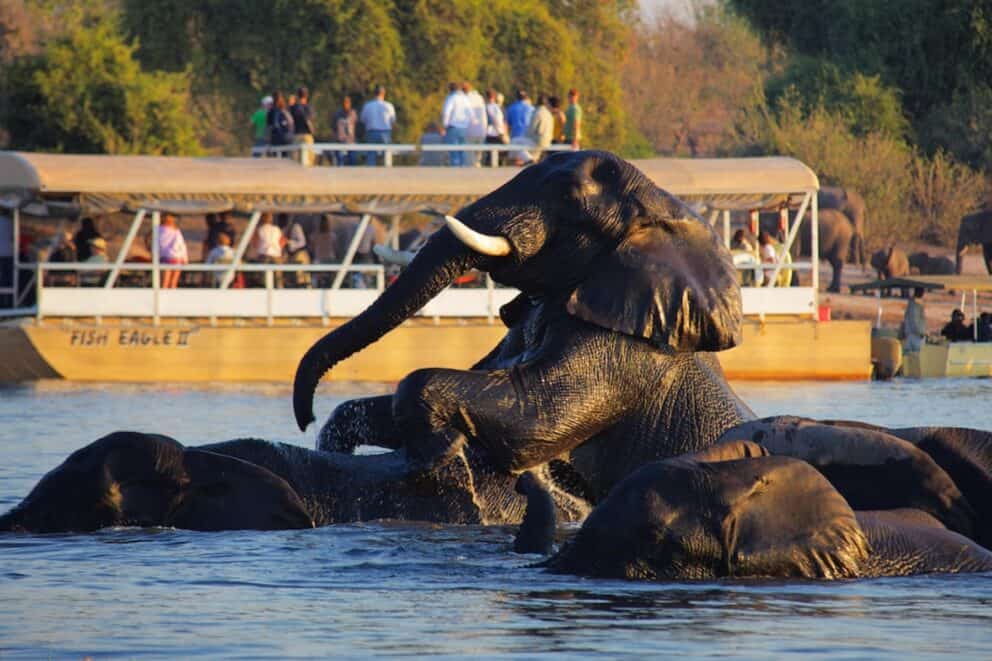
The best place to see Elephants: Chobe River, Botswana
2. Hippos
These semi-aquatic, barrel-shaped beasts spend most of the day submerged in water to stay cool and out of the sun’s harmful rays. Fiercely territorial, hippos are considered one of the most dangerous animals in Africa, but you can observe pods of them safely from your deck.
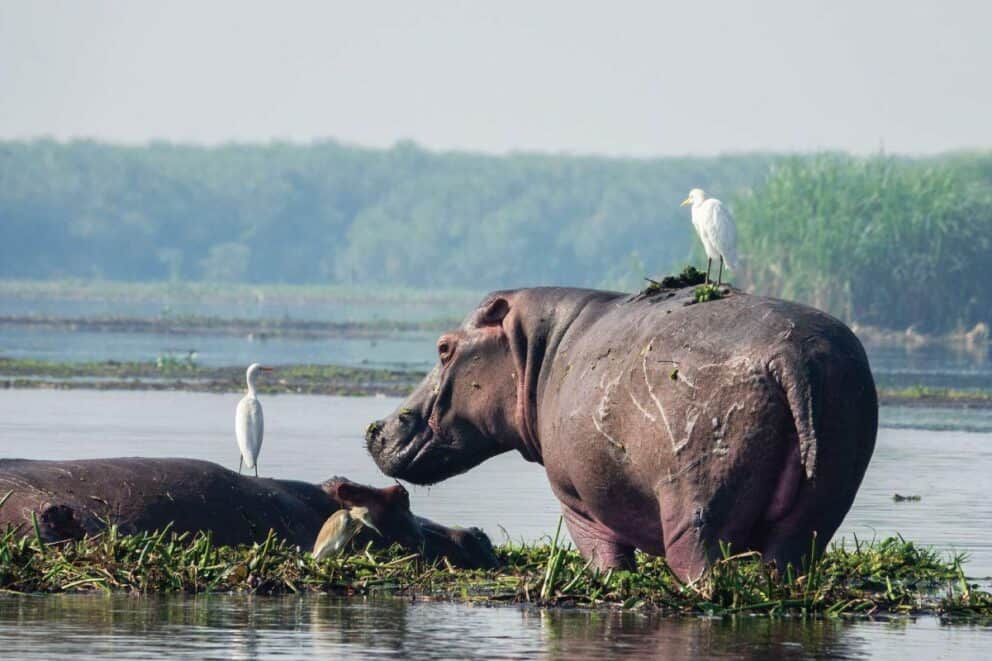
The best place to see Hippos: Zambezi River, Zimbabwe/Zambia
3. Crocodiles
When they’re not waiting patiently for prey at the river’s edge, these ancient reptiles can be spotted sunbathing on riverbanks. Nile crocodiles in particular are one of the largest species of crocs in the world and watching them navigate the waters is awe-inspiring.
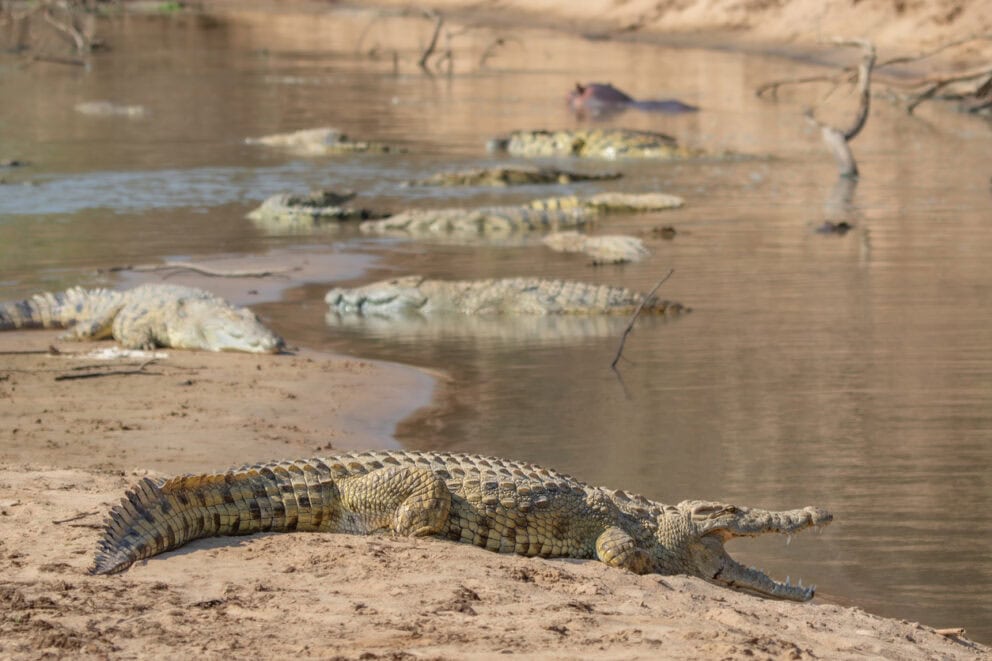
The best place to see Crocodiles: Okavango Delta, Botswana
4. Birdlife
The birdlife as seen from a houseboat is astonishing. See a diversity of species such as the majestic fish eagle, vibrant kingfishers swooping for their prey, and an array of elegant herons and storks, to name just a few. The serene setting on the water just adds to the experience.
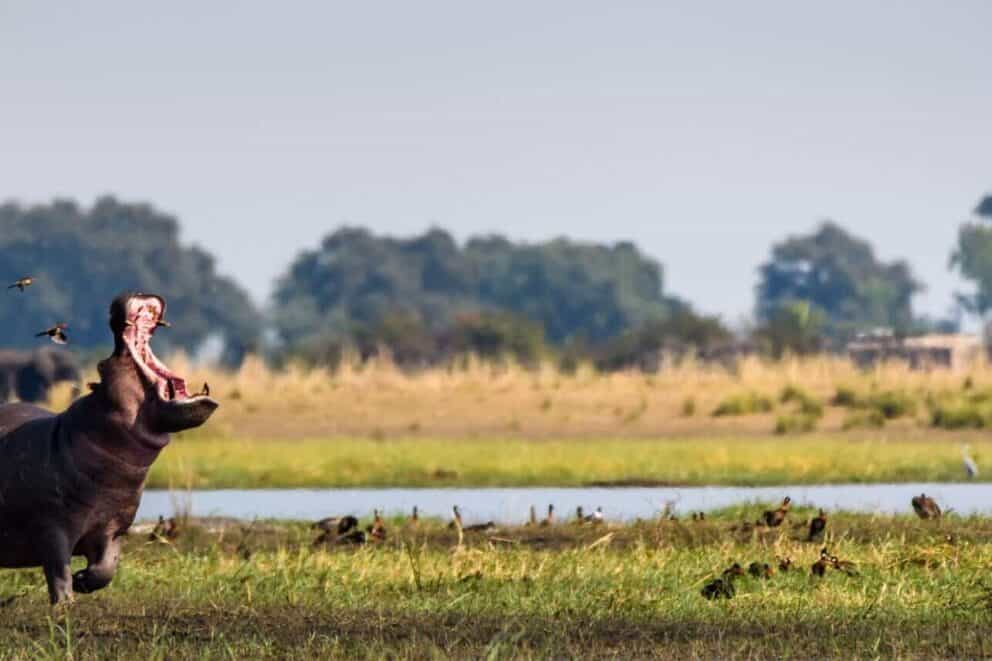
The best place to see birdlife: Lake Kariba, Zimbabwe
5. Antelopes
This diverse group of herbivorous animals often gathers near sources of water to quench their thirst. Spot species like impalas (common prey for predators), kudus (with their long twisted horns), and waterbucks (with their shaggy water-repellent coats).
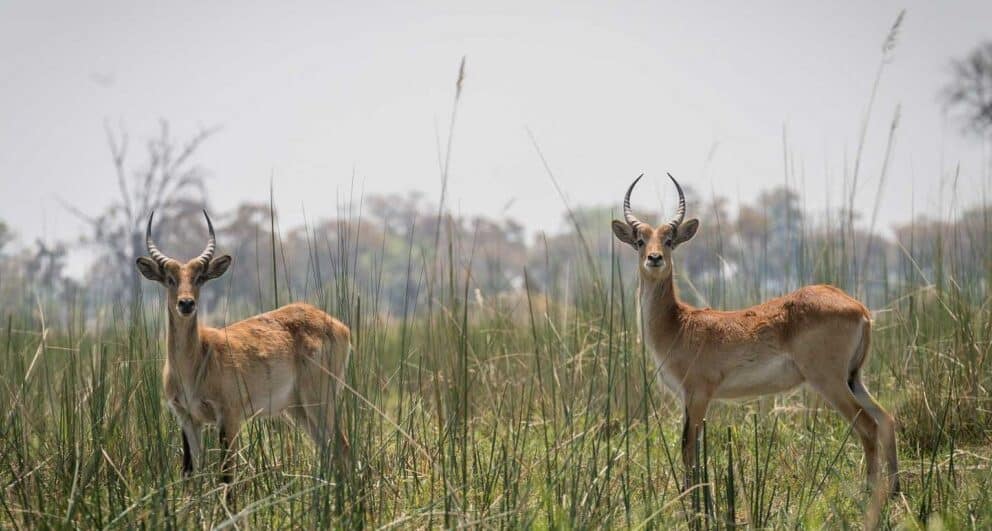
The best place to see Antelopes: Kavango River, Namibia
6. Aquatic Life
When the water’s clear, don’t forget to look beneath the surface. You could spot various species of fish, freshwater stingrays, and even otters. In some cases, your houseboat will have fishing gear, but note most places will operate on a catch-and-release basis.
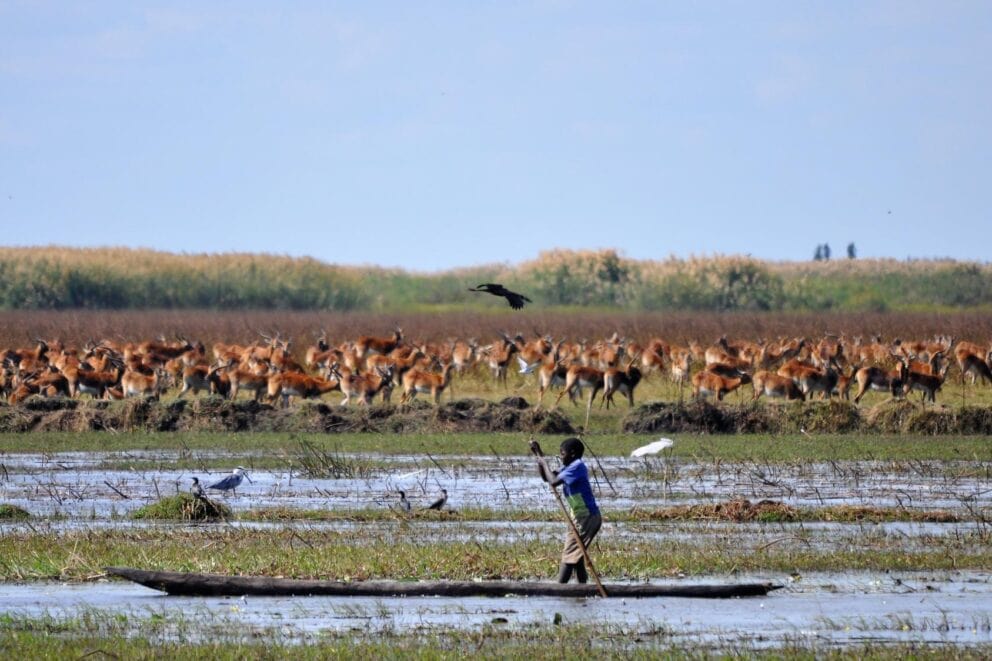
The best place to see aquatic life: Pongolapoort Dam (Lake Jozini), South Africa
7. Buffalos
Often spotted in herds, watching these hefty creatures come down to the water to graze, drink, or cool off can be a spellbinding experience, particularly when there are young ones about. Buffalos consume vast amounts of vegetation daily, and you can watch them for hours.
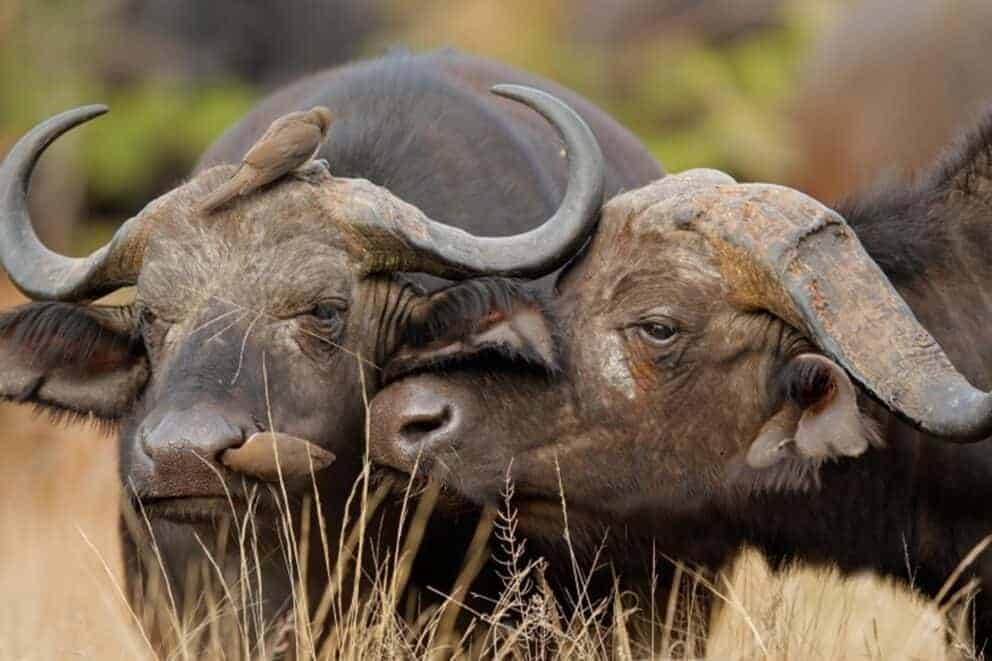
The best place to see Buffalos: Chobe River, Botswana
8. Monkeys and Baboons
Many species of playful apes are drawn to the water and can often be spotted jumping from tree to tree. Watching them groom and forage just yards away from your houseboat is an enchanting and entertaining experience you’ll be glad you didn’t miss.
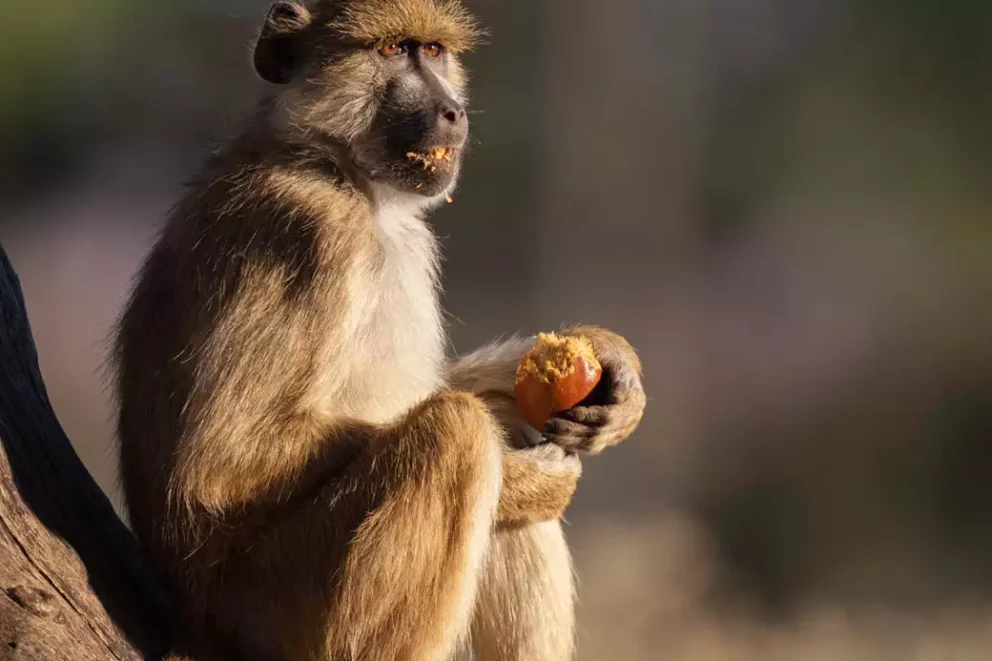
The best place to see Monkeys and Baboons: St. Lucia Estuary, South Africa
9. Predators
With all the prey that gathers at water sources to drink, the predators are never far behind. Prides of lions, clans of hyenas, and solitary leopards can all be spotted along riverbanks, drinking and keeping an eye out for an easy meal, especially impalas.
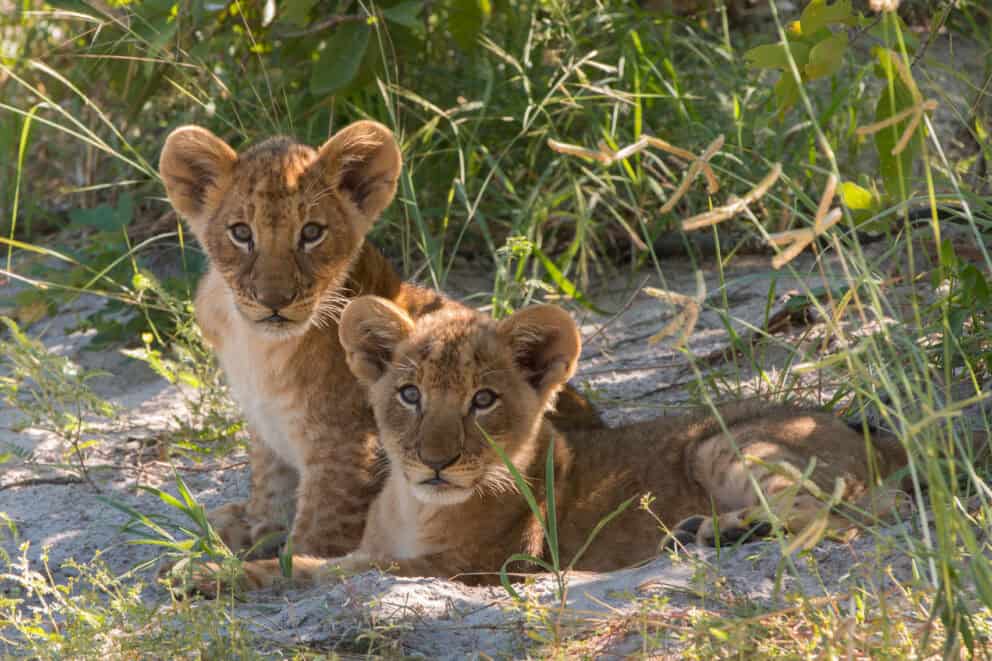
The best place to see predators: Nile River, Uganda
10. Reptiles
Crocodiles aren’t the only reptiles you’ll see from the comfort of your houseboat. Fascinating species like monitor lizards can often be spotted on river banks and you’ll also get to see a wide variety of snake species swimming through the waters.

The best place to see reptiles: Lake Tanganyika, Tanzania
Does an African houseboat safari sound like a dream vacation to you? Speak to a safari expert at Discover Africa about taking a houseboat safari and having a tailor-made safari experience you’ll never forget.









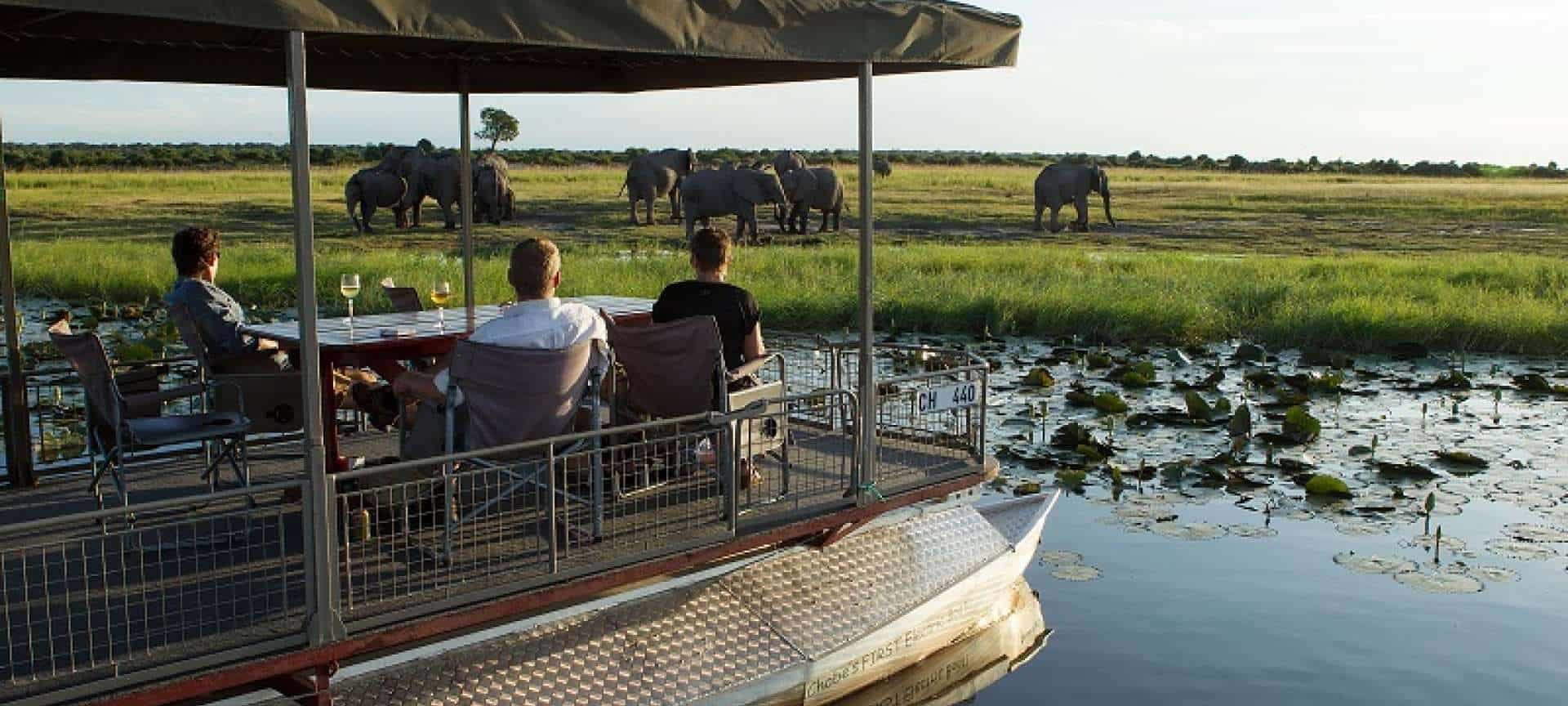
 Blog List
Blog List










Written by Johnieka Holtzhausen
• Travel Writer
Part of the Houseboat Safaris Collection